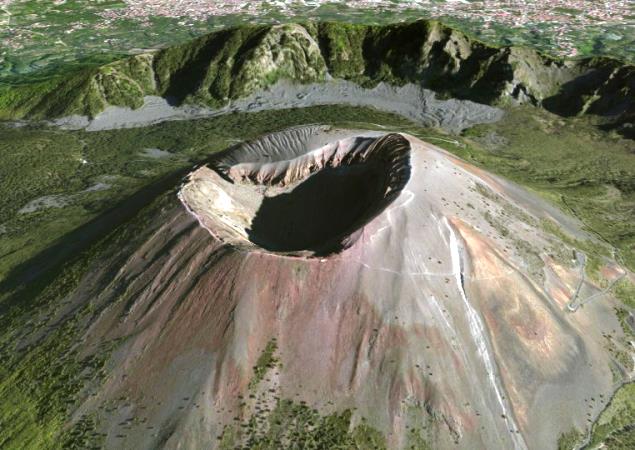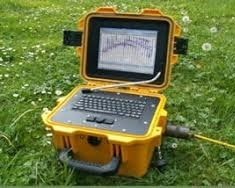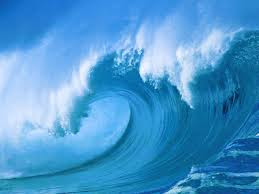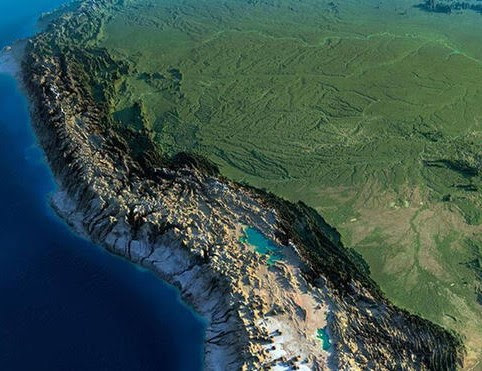 |
| Idealized image of the Earth's magnetic field. |
BIBLIOGRAPHIC REFERENCE
(1) FIELD GEOPHYSICS.pdf, Pag.16.
Contacto : cgeofisica@gmail.com
Ciencia y Geofísica
Grupo IGPERU
Ciencia y Geofísica

Estudiamos el comportamiento de los fenómenos atmosféricos!

Estudiamos el comportamiento de los volcánes!

Estudiamos técnicas físicas y matemáticas, aplicadas a la exploración del subsuelo para la búsqueda de recursos naturales y yacimientos minerales.

Estudiamos los fenómenos térmicos que tienen lugar en el interior de la Tierra.

Estudiamos la dinámica y cinemática de los procesos que deforman a la litosfera mediante métodos cuantitativos.

Estudiamos las propiedades magnéticas de la Tierra.

Aplicando los conocimientos en Inteligencia Artificial para convertir la Geofísica más inteligente.



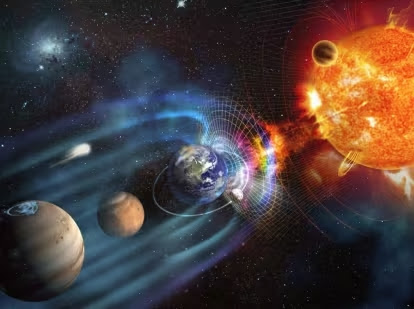
 |
| Idealized image of the Earth's magnetic field. |
 |
| Imagen idealizada del Campo Magnético de la Tierra |
 La Tierra, un planeta dinámico desde hace miles de años, nos ha demostrado su actividad y su energía a través de diferentes manifestaciones físicas como terremotos, erupciones volcánicas o por el movimiento de sus placas tectónicas. Todas estas manifestaciones tienen su origen desde el interior de nuestro planeta. A varios cientos de kilómetros de profundidad, la Tierra es un planeta caliente que se encuentra en movimiento debido a las altas presiones y temperaturas en su interior, va transmitiendo calor a través de los diferentes materiales y medios circundantes hasta llegar a la Litosfera donde se va enfriándose gradualmente. ¿Pero cómo se transmite el calor del interior de la Tierra?
La Tierra, un planeta dinámico desde hace miles de años, nos ha demostrado su actividad y su energía a través de diferentes manifestaciones físicas como terremotos, erupciones volcánicas o por el movimiento de sus placas tectónicas. Todas estas manifestaciones tienen su origen desde el interior de nuestro planeta. A varios cientos de kilómetros de profundidad, la Tierra es un planeta caliente que se encuentra en movimiento debido a las altas presiones y temperaturas en su interior, va transmitiendo calor a través de los diferentes materiales y medios circundantes hasta llegar a la Litosfera donde se va enfriándose gradualmente. ¿Pero cómo se transmite el calor del interior de la Tierra? La convección es un proceso un poco más complejo que se da solamente en fluidos (líquidos y gases). Al ser calentada la parte inferior de un fluido, ésta se expandirá y se volverá menos densa que la parte superior más fría, por lo cual tenderá a subir, con lo que la parte fría quedará ahora en contacto con la fuente de calor repitiéndose de esta forma el proceso y dando origen a lo que se llama celdas de convección, en las cuales existen corrientes ascendentes y descendentes. Este mecanismo se va a generar a partir de un cierto valor de la diferencia de temperatura y depende de la viscosidad y densidad del fluido.
La convección es un proceso un poco más complejo que se da solamente en fluidos (líquidos y gases). Al ser calentada la parte inferior de un fluido, ésta se expandirá y se volverá menos densa que la parte superior más fría, por lo cual tenderá a subir, con lo que la parte fría quedará ahora en contacto con la fuente de calor repitiéndose de esta forma el proceso y dando origen a lo que se llama celdas de convección, en las cuales existen corrientes ascendentes y descendentes. Este mecanismo se va a generar a partir de un cierto valor de la diferencia de temperatura y depende de la viscosidad y densidad del fluido.
 |
| Simulación de las corrientes de convección en el Manto |
 |
| Modelo del núcleo de la Tierra. |
 |
| Simulación Geofísica. |
 |
| Monitoreo Geofísico en Ecuador. |
 |
| Software Geofísico |
 |
| Caldera volcánica. |
 |
| Caldera Chalupas - http://especiales.elcomercio.com/ |
 |
| Outlining gravitazionale onda |
El Papel Transformador de la Inteligencia Artificial en la Geofísica La Inteligencia Artificial (IA) está revolucionando prácticamente todo...

Copyright ©
Ciencia y Geofísica | Powered by Blogger
Design by SimpleWpThemes | Blogger Theme by Lasantha - PremiumBloggerTemplates.com




